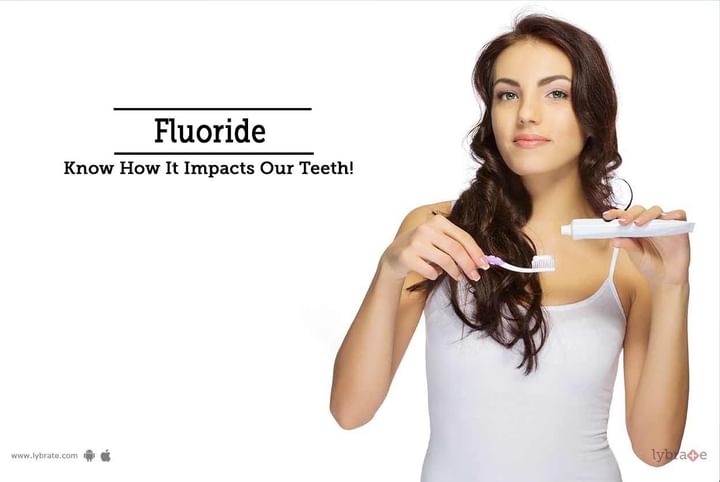Fluoride - Know How It Impacts Our Teeth!
Fluoride is a chemical naturally present in water and in some foods and is essential for healthy bone growth. A few decades ago, fluoride was discovered to have anti-cariogenic (against tooth decay) properties and slowly gained popularity. While most believe that fluoride can do wonders for your teeth and help you get rid of all problems, it is not true. There is only so much that fluoride can do and there are also undesirable effects from it.
Read on to know some myths about fluoride versus the actual facts.
Myth: Drinking fluoridated water can lead to fluorosis, which produces brown, pitted teeth, which are weak and aesthetically unappealing.
Fact: People develop fluorosis only when the water contains excessive amounts of fluorine. The currently defined permissible level is about 0.7 parts per million. At this level, fluoride provides the maximum protection against caries, at the same time not leading to fluorosis. In some cases, mild fluorosis can be seen, which only produces white speckles on the tooth and not brown pits. These teeth have a higher resistance to decay than people drinking non-fluoridated water.
Myth: Fluoride is a forced medication
Fact: Fluoride is a chemical with special benefits to the bones and teeth. In cases where the water does not contain sufficient quantities of fluoride or where the person is prone to decay, adding fluoride will provide the extra level of protection against caries.
Myth: Adding fluoride to the drinking water leads to various other medical conditions (heart disease, cancer, etc.)
Fact: Various studies have shown that this is not true. In fact, fluoride has been endorsed as safe to use and does not contribute to any diseases like heart disease, cancer, autism, or kidney problems.
Myth: Fluoride is not safe for children.
Fact: Children need a good amount of fluoride in their tooth forming years. This produces teeth that are more resistant to decay and are stronger generally. If the regular supply of water does not contain sufficient fluoride, then the child can be given supplements in the form of fluoridated toothpaste and gel applications at the clinic to provide the anti-cariogenic benefit.
Myth: If there is enough water in the fluoride, then there is no worry of tooth decay.
Fact: Fluoride only makes the teeth resistant to easy decay, it does not protect from decay completely. Proper oral hygiene habits (brushing, flossing, rinsing, dental visits) are essential to ensure that there is no plaque accumulation and food deposits to prevent caries. Fluoride is not a replacement for these practices.
Like with anything else, even excessive fluoride is not good for health, therefore the recommended level is 0.7 ppm. Ensure fluoride supplements are used only after a discussion with your dentist.



+1.svg)
